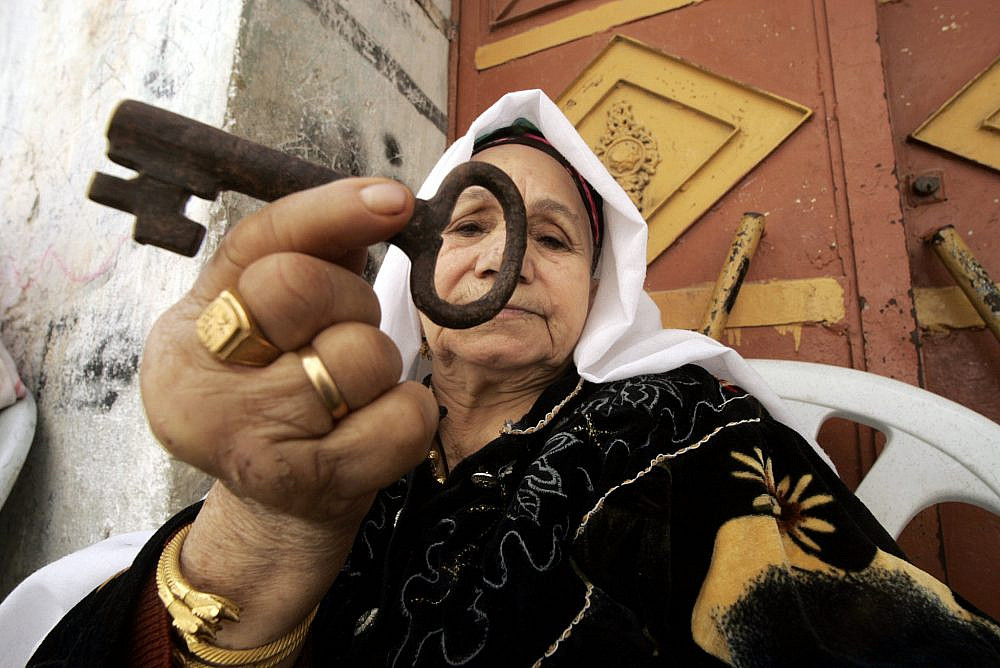PODCAST: How can the return of Palestinian refugees become feasible?
Lubnah Shomali from BADIL, a Palestinian group that advocates for the rights of refugees, pieces together the practicalities of return.
 Palestinian refugee Laila Abdel Meguid Tafesh, 78, holds up a key allegedly from her house in Jaffa, on May 15, 2009 in the Rafah refugee camp, southern Gaza. (Abed Rahim Khatib / Flash90)
Palestinian refugee Laila Abdel Meguid Tafesh, 78, holds up a key allegedly from her house in Jaffa, on May 15, 2009 in the Rafah refugee camp, southern Gaza. (Abed Rahim Khatib / Flash90)
 ByHenriette ChacarMay 22, 2020
ByHenriette ChacarMay 22, 2020Palestinian refugees are the longest-standing displaced population in modern history. There are currently more than 8 million displaced Palestinians spanning several countries, including internally displaced persons inside Israel.
In the second episode of a three-part series on the right of return for Palestinian refugees, Lubnah Shomali from BADIL, a Palestinian organization that advocates for refugees’ rights, discusses the practicalities of return.
“Israel has to be brought into compliance with international law and be forced to make reparations to the Palestinian people,” says Shomali. “This is standard practice in international law. We’re not thinking outside the box — the box is there and the international community put it there.”
Throughout the episode, Shomali answers questions like: how would return be facilitated? Who would be involved in the process? And what happens in cases where refugees aren’t able to return to their original homes?
Bringing refugees back is “probably the easiest part,” she states. “If we do not create programs, projects, infrastructures, economic institutions for a viable nation-state or community, then the return will not be sustainable.”
The essence of return, she notes, is to restore the structures that were lost from the displacement while building an equitable society for all.

No comments:
Post a Comment
Note: only a member of this blog may post a comment.